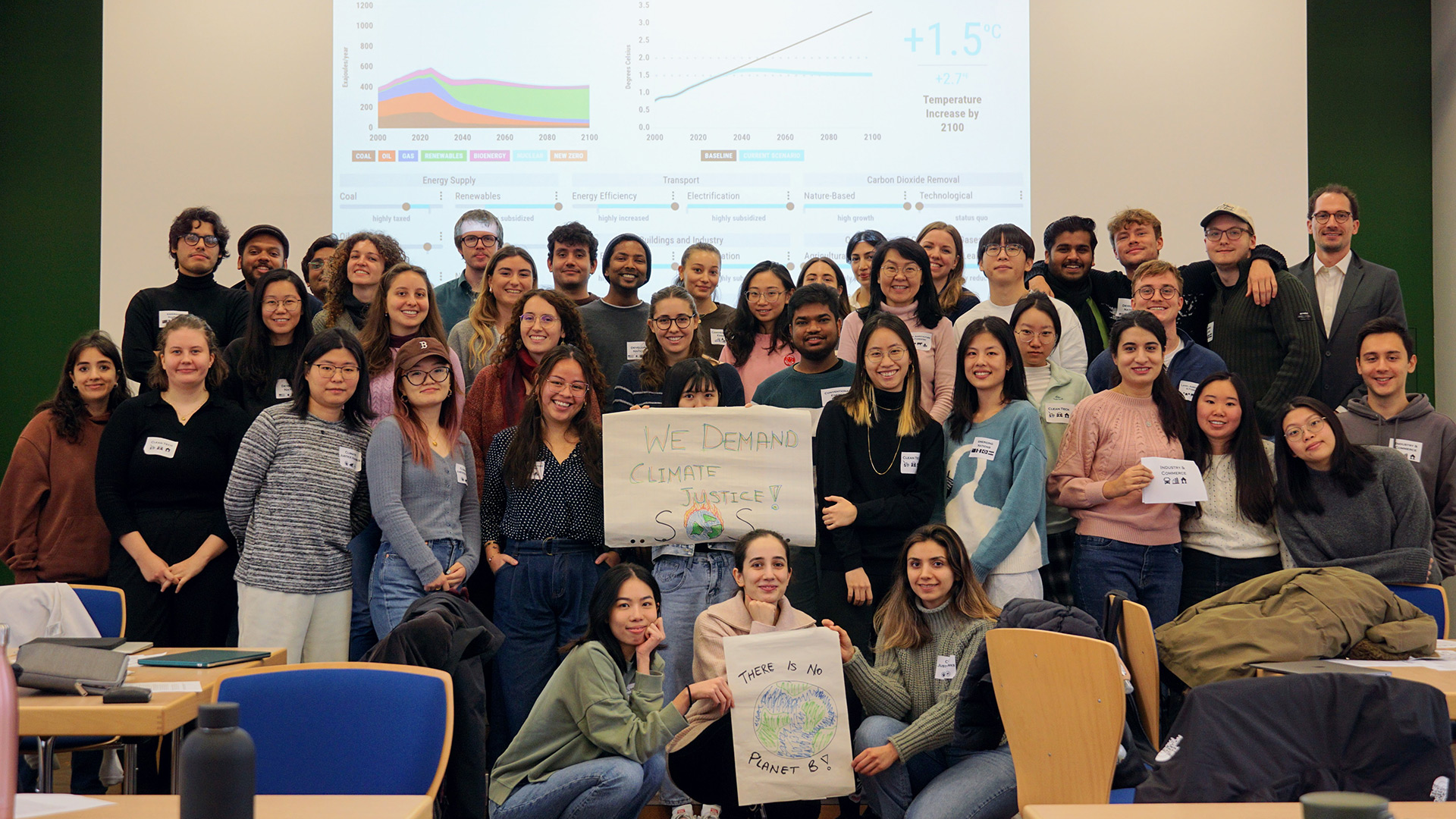On 19 November 2024, the lecture ‘Innovation in Bioeconomy’ by Prof. Dr. Claudia Doblinger and Dominik Fischer provided an exciting insight into the complexity of such negotiations. Here, students used the simulation game ‘Climate Action Simulation – EnRoads’ to experience the dynamics of international climate negotiations first hand. They took on the roles of various stakeholders such as governments, companies or NGOs and were able to try out different political measures themselves. In doing so, they examined how decisions in areas such as renewable energies, CO₂ pricing or reforestation interact with each other and what effects they have on the climate, economy and society. This interactive approach enabled participants to better understand the challenges and complex decision-making processes that delegates have to navigate at climate conferences like the COP. At the same time, it raised awareness of the urgency of coordinated global action.
The simulation game is based on En-ROADS, an interactive simulation model developed by the Climate Interactive organisation in collaboration with the MIT Sloan Sustainability Initiative. It allows users to simulate the effects of various climate policies and measures on global temperatures up to the year 2100. En-ROADS provides a user-friendly platform for decision-makers, scientists and the general public alike. The tool takes into account a wide range of factors such as energy consumption, economic growth, population dynamics and technological innovations. Users can test different scenarios by adjusting parameters such as renewable energies, energy efficiency, carbon pricing, reforestation or phasing out fossil fuels. The model shows the effects of the decisions made on the global temperature in real time. En-ROADS helps to gain a deeper understanding of which measures are really effective in achieving the goals of the Paris Climate Agreement, while also providing a basis for informed discussions and negotiations – be it in education, at climate conferences such as the COP or in other political decision-making processes.
